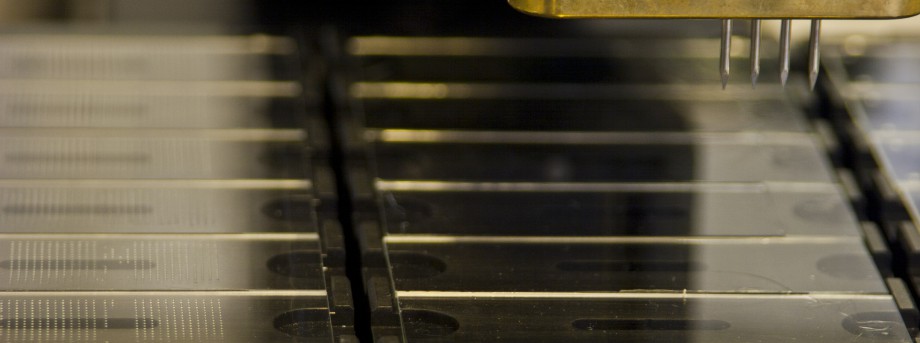The University of Nottingham
 Exchange online
Exchange online
Research Exchange
Bacteria resistant materials – £2m to get the ‘inside’ story

July 29 2014
Researchers who discovered a group of new materials capable of repelling bacteria have each won a prestigious research award worth a combined £2m to find out why.
Their bacteria resistant polymers could lead to a significant reduction in hospital infections acquired through implanted medical devices and improve the health care of hospital patients across the globe.
Morgan Alexander, Professor of Biomedical Surfaces in the School of Pharmacy and Paul Williams, Professor of Molecular Microbiology, in the School of Life Sciences at The University of Nottingham, have each received a Wellcome Trust Senior Investigator Award for a joint project to understand why bacteria take such a dislike to their newly discovered polymers. These are the first awards of their kind for the University.
Controlling the number of infections acquired through indwelling medical devices – such as catheters, intravenous tubes and artificial joints – could significantly reduce the number of medical complications, save thousands of lives a year and reduce medical costs. These Senior Investigator Awards will fund a centre of excellence which will study the underlying mechanisms behind the resistance these materials show to bacterial attachment and biofilm development.
Professor Alexander said: “We have a challenging five years ahead of us. The polymer material chemistries could not have been predicted from our current understanding of bacterial responses to materials. We will develop new analytical approaches to elucidate the mechanisms by which these polymers resist bacterial attachment encompassing the material and the cells.”
Professor Williams said: “Bacteria are highly adaptable micro-organisms and we need to discover the genetic basis of how they sense and respond to chemically distinct polymer surfaces. By combining our expertise in materials science and microbiology we are taking an interdisciplinary approach to solving a major medical problem.”
New discovery took them by surprise
Bacteria are attracted to implanted medical devices where they attach as single cells and grow as microcolonies eventually forming ‘slime cities’ or biofilms. Within these biofilms the bugs can hide to avoid detection and are protected from attack by the body’s own immune defences and antibiotics.
In the process of developing a new high-throughput approach to the study of bacterial attachment to hundreds of materials Professors Alexander and Williams and their team discovered a group of polymers that had the ability to reduce bacterial attachment– something that they had hoped for but was far from guaranteed at the outset. After further investigation they discovered that by coating silicone devices with these ‘hit’ materials there was a reduction of nearly 97 per cent in the surface area covered by bacteria compared with commercially available clinical devices. In August 2012 they published their discovery in Nature Biotechnology.
Clinical trials planned
Two years on and the newly discovered materials have now been licensed to a UK SME, Camstent Ltd, with whom the University is developing coated urinary catheters through the first clinical trial which is being prepared for this autumn.
New funding secures interdisciplinary research
A closer understanding of the mechanisms used by bacteria to interact with polymer surfaces could inform rational design of improved bacteria resistant polymers in the future and achieve a transformative change in preventing device-centred infections.
Professors Alexander and Williams propose to build on the discovery of these new materials and their use in indwelling medical devices. Their research will take an interdisciplinary approach, combining material science and molecular microbiology, in conjunction with high-resolution state-of-the-art imaging, exploiting the extensive material chemistry and attachment phenotypes.
For the original press release on this research and accompanying video click here.
Tags: Bacteria resistant materials, Camstent Ltd, indwelling medical devices, materials science, microbiology, Nature Biotechnology, polymers, Professor Morgan Alexander, Professor Paul Williams, School of Life Sciences, School of Pharmacy, Wellcome Trust Senior Investigator Award
Leave a Reply
Other

Top prize for quantum physicist
A University of Nottingham physicist has won a prestigious medal from the Institute of Physics for […]

Zero carbon HOUSE designed and built by students comes home
Design and construct a low cost, zero carbon, family starter home, transport it to Spain, build […]